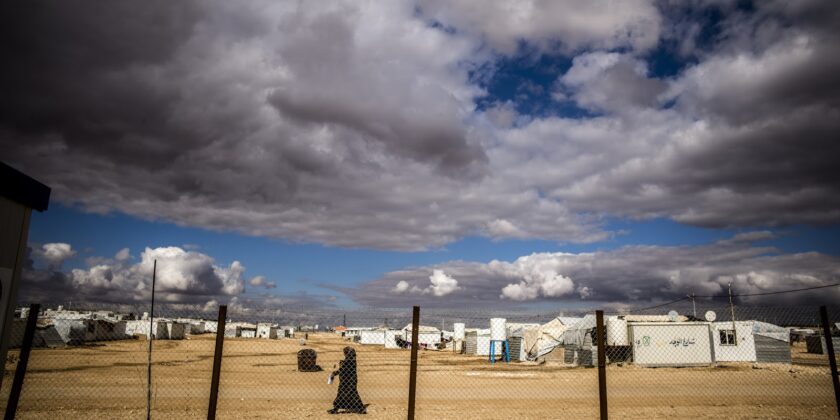Across multiple fronts, instability is escalating in the region, and creating strategic threats whose combination is more dangerous than the sum of each of them. While Jordan’s geography has always been a strategic advantage, as the region descends into chaos, it also finds itself in the middle of these conflicts, each of which would be difficult to manage and navigate on their own.
The new clashes in eastern Syria in between Arab tribal fighters and Kurdish fighters are adding more complexity to the current situation in Syria. Turkish Foreign Minister Hakan Fidan commented briefly on the conflicts in Deir Ezzor during a joint press conference with the European Union Commissioner for Neighbourhood and Enlargement, when he was asked whether the conflicts pose a threat to Turkey’s border security, he responded by saying that “what we see is just the beginning”. Adding to the situation, in areas Deir Ezzor and Suwaida where the large Druze community is protesting. Meanwhile, terrorist groups are becoming more active, and the trafficking of drugs and weapons are not decreasing.
Syria and its ongoing instability exacerbate the complicated situation with drugs and weapons trafficking. Instability only further paves the way for terrorist groups to establish and operate more frequently. Jordan needs to adopt a strategy that drains both criminal and terrorist risks and calls for combined operations with allies to prevent terrorism and criminality from turning the areas close to the Jordanian borders into hubs for their activities.
In Lebanon, the economic crisis, presidential vacuum, and tensions on the southern borders clearly demonstrate a situation of deep instability. Further, armed clashes between Fateh and other groups in Ain Al Hilweh Palestinian refugee camp in southern Lebanon have erupted again increasing the risk of instability. In the West Bank, the positions of the Israeli government represent another risk to spark a new wave of violence and instability. The issue of the succession of Palestinian President Mahmoud Abbas and the inability to achieve reconciliation among the Palestinian factions could drive further instability as the situation escalates.
On this front, the lack of chemistry between the Jordanian and Israeli government is a clear obstacle for Jordan and puts Jordanian interests at risk. Jordan needs to establish open channels with all the Palestinian protagonists to position and ensure its views and interests are considered in the situation.
Meanwhile, fragility in Iraqi is entering a new chapter of chaos as people were shot dead, sparking further violence in Kirkuk. Iraq is witnessing the return of terrorist activity, predominately Daesh, as well as political instability due to the fragmentation within the Shia political block, mainly the positions of Muqtada Al Sadr.
Regional security and political challenges should also make Jordan focus more on internal issues. The country needs to tackle the economic hardships and the wide social frustration that only create fodder for the terrorist and criminal groups operating on its borders.
Achieving this requires creating positive perceptions and shaking up some inefficient policies currently in place.
Dr. Amer Al Sabaileh

